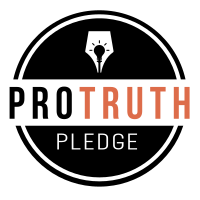Jekyll/Liquid Tags
Published: |
Updated:
| by Julian Knight Reading time ~3 min.
📖 Kb
| 📎
Development
| 🔖
Jekyll, Static Site Generators
This is a list of tags that can be used in Jekyll.Tags appear within {% tagname %} markup.
Matching end-tags are shown in brackets.
GitHub pages use Jekyll which in turn uses Liquid. See also the official tags reference.
Control flow tags 🔗︎
case (when, else, endcase) - a switch statement
if (else, elsif, endif) - execute block only if the condition is met
Note the odd spelling of
elsif(e.g. no seconde)Conditional tests support
andandorto link conditions together e.g.{% if line_item.grams > 20000 and customer_address.city == 'Ottawa' %}raw (endraw) - stops Liquid from parsing the content so that you can include double braces for example.
unless (endunless) - execute block only if the condition is not met
Iteration tags 🔗︎
cycle - must be used in a for-loop. Cycles through the parameters e.g.
{% cycle 'a', 'b' %} {% cycle 'a', 'b' %} {% cycle 'a', 'b' %} #=> a b aCan also specify a group name - see the documentation for more complex examples.
for (endfor, else, break, continue) - basic loop.
For-loop parameters:
Limit the iterations using the
limitparameter e.g.{% for item in numbers limit:2 %} {{ item }} {% endfor %}Use the
offsetparameter to start at a particular index.Use the range parameter to create a number range to loop over, range numbers can be variables. e.g.
{% for i in (1..100) %} {{ i }} {% endfor %}Use the
reversedparameter to reverse the order of the loopFor-loop variables - in a for-loop, we get the
forloopobject (ref):forloop.first/last - true when the loop is at the first/last iteration
forloop.index/index0 - 1/0-based index number for the current iteration
forloop.rindex/rindex0 - 1/0-based reverse index number for the current iteration
forloop.length - the length of the array being looped over
tablerow (endtablerow) - Generate rows for an HTML table.
Includes parameters:
cols(defines the number of columns),limit,offset,range,first,col,col_firstand others. See the documentation for details
Theme/rendering tags 🔗︎
comment (endcomment)
form
include_relative
javascript
layout
paginate
raw (endraw) - temporarily disables tag processing. Useful for generating content (eg, Mustache, Handlebars) which uses conflicting syntax.
schema
section
stylesheet
highlight - render a code block with syntax highlighting, optional line numbers. Note that filters are processed inside code blocks so wrap the block with and endraw tags if it contains curly braces. To find the appropriate identifier to use for the language you want to highlight, look for the “short name” on the Rouge wiki or the Pygments’ Lexers page.
link - create an html link to another page in the Jekyll site. WARNING: MUST CONTAIN A VALID SOURCE DOCUMENT NAME including folder and source extension otherwise the Jekyll build fails - on GitHub an immensely unhelpful generic error message is produced that does not allow you to identify the document causing the issue.
Variable tags 🔗︎
- assign - Assign a value to a variable. e.g.
{% assign name = 'freestyle' %} - capture (endcapture) - Combine a number of outputs and assign to a variable.
e.g.
{% capture attribute_name %}{{ item.title | handleize }}-{{ i }}-color{% endcapture %} - decrement
- increment


